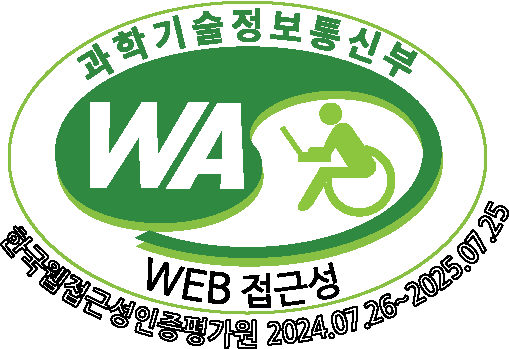장관
유엔 평화구축위원회(PBC) 장관급회의 발언문(9.26.)
- 작성일
- 2024-09-26
- 조회수
- 7834
Remarks by H.E. Cho Tae-yul
Minister of Foreign Affairs of the Republic of Korea
2024 Peacebuilding Commission Ministerial-level
September 26, 2024
Thank you, Mauro.
I would like to begin by expressing my gratitude to Madam Rosemary DiCarlo, Under Secretary General for DPPA for keynote speech and His Excellency Danilo T ürk, former President of the Republic of Slovenia and Professor Funmi Olonisakin for their briefings.
Let me also express my appreciation for Brazil’s continued leadership in promoting sustaining peace.
It is indeed a great pleasure for me to return to the Peacebuilding Commission, Mauro, where you and I once worked closely together as Permanent Representatives.
Today, building on the PBC discussion on The Gambia that I led with Minister Mamadou Tangara last June, I wish to highlight three points for enhancing the UN peacebuilding architecture.
First, the PBC has been effective in raising awareness about the challenges facing countries in transition. However, there is room for the Commission to provide more substantial support by strengthening partnerships with international financial institutions (IFIs), regional organizations, and the private sector.
The PBC’s convening role should extend beyond holding meetings. The Commission can visit IFIs to advocate for funding, engage directly with bilateral and multilateral donors, and facilitate connections with private sector stakeholders.
As Chair of the PBC in 2017, I focused on strengthening the institutional relationship with the World Bank, in particular. I visited the World Bank with PBC Ambassadors and facilitated an agreement to hold an annual dialogue, thus laying the groundwork for increased resource mobilization.
This was important because, despite mechanisms like the World Bank’s International Development Association (IDA), designed to support countries in transition, the banks’ inherent risk aversion has often limited funding availability. And the PBC, with its unique composition of leading financial and troop contributors, is ideally positioned to advocate for increased support from the IFIs.
I commend the PBC for its ongoing efforts to engage with other IFIs such as African Development Bank and Asian Development Bank, and hope that such efforts will be further strengthened in the future.
Additionally, the PBC should coordinate closely with the Peacebuilding Fund (PBF), which, as a primary investment source for countries in transition, can mitigate the risks that deter IFI investments.
Second, the PBC should strengthen its role in bridging intergovernmental bodies – the Security Council, General Assembly and ECOSOC - to promote a holistic, integrated approach to peacebuilding.
Given that many of today's conflicts are fueled by local grievances over poverty, climate change, and resource allocation, a comprehensive strategy focusing on the humanitarian-development-peace (HDP) nexus is critical. As the only body mandated to address all three UN pillars, the PBC is uniquely equipped to offer comprehensive guidance.
The PBC can advise the Security Council on security matters, ECOSOC on development issues, and the General Assembly on areas beyond the Security Council’s scope.
It is essential for the PBC to take proactive steps in providing timely and actionable advisory opinions to the Security Council. Furthermore, we need to explore how to strengthen the PBC’s role during transitional phases, particularly during drawdown phases.
The Commission’s involvement in the UNMIL exemplifies its critical support for countries in transition. We hope fruitful discussions on specific measures to enhance this collaboration will take place during the upcoming 2025 Review of Peacebuilding Architecture.
It is also crucial for the PBC to work closely with ECOSOC in addressing cross-cutting issues. A key example of this collaboration can be seen in the Sahel. Following joint PBC-ECOSOC meetings on the Sahel, the G5 Sahel and Korea co-led an ECOSOC resolution in 2019 that directed the UN development system to deliver strong, coordinated support to the region.
Finally, strengthening partnerships at the country level is crucial for helping countries achieve national priorities and enhancing the Commission’s impact on the ground. Recent reforms that empowered Resident Coordinators allow the PBC to engage more strategically with them, especially the multi-hatted Deputy SRSGs.
The Commission can thus provide the necessary political leverage and support from New York, enabling Resident Coordinators, in close cooperation with the governments, to better mobilize resources and coordinate stakeholders.
In this context, we believe that the Peacebuilding Impact Hub can greatly improve peacebuilding efforts by analyzing both success and failure stories of peacebuilding interventions and practice and sharing valuable insights into the role of peacebuilding in increasingly complex environments.
The Republic of Korea fully supports the initiative and other efforts of the PBSO to enhance the impact of peacebuilding on the ground. We are confident that our combined efforts will lead to meaningful improvements in understanding and implementing peacebuilding initiatives worldwide.
I encourage the Commission to continue exploring such initiatives. Thank you very much. /END/

